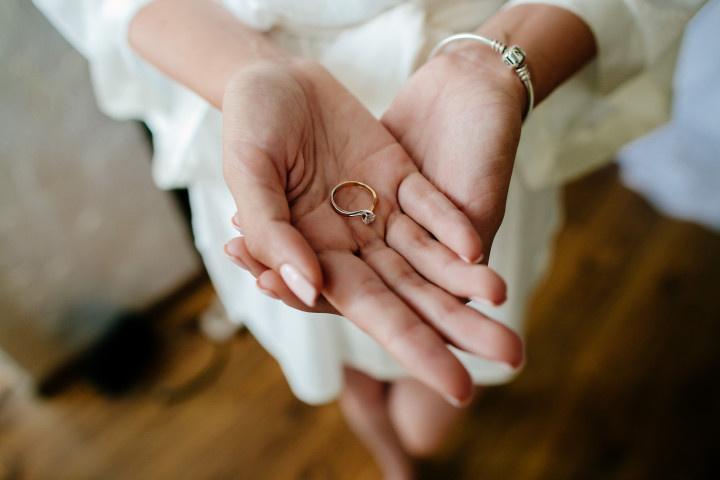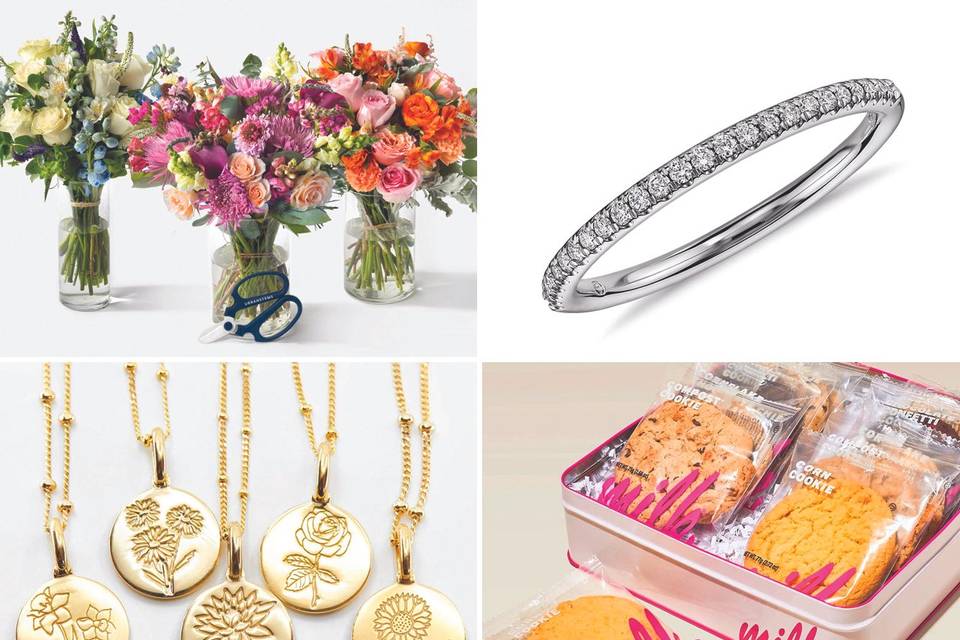What to Do When You’re Not Ready for Marriage
If you're feeling major cold feet, learn why you might not be ready for marriage—and what you can do about it.


While your friends might have countless engagement ring photos saved on Pinterest, and detailed inspiration about every detail of their dream wedding, you’re hanging out in the sidelines, trying not to showcase anxiety because you’re not ready for marriage quite yet. Even if you can’t pinpoint why you don’t feel the overwhelming urge to start the path to marriage, if you’re in a long-term, happy relationship but you can’t seem to move to the next step, it might be time to examine your frustrations and hesitations. While it’s true that a lawfully-wedded life isn’t mandatory for every couple, if your partner is hinting to popping the question and you’re shuddering at the thought, reaching a common ground and shared page may be the only way to save your union.
Here, a look at why you might not be ready for marriage—and more importantly, what to do about it.
You might not be ready to get engaged because you don’t want the same things.
When you imagine the next few years - or decades - of your life, you probably have a rough estimate of the experiences you’d like to have. Maybe it’s traveling to at least a dozen more countries, landing that promotion at work or branching out as an entrepreneur, and perhaps having children. When you’re in a relationship though, your goals aren’t only your own, but a shared part of the future you’re building with another person. So when what you want your of life and what your partner desires conflict, sex and relationship therapist Courtney Geter, LMFT, CST says tensions will form - turning you off from the idea of happily-ever-after.
“Differing relationship and life goals including expectations of roles, children, and sex is a key factor that married couples seek therapy. Many people dismiss the fact their partner doesn't meet all their expectations or needs,” she shares. “I see many couples where one partner wanted children or more children though their future spouse did not share the same goals. At the point in the marriage, the decision turns to one person having to concede, the couple finding a compromise, or possible dissolution of the marriage in order for one or both to have their ideal goals. As for gender roles, it's also very important to discuss these expectations early on especially for couples who don't live together before marriage. If you expect a partner to contribute equally to house cleaning though your partner had someone to clean for them, they may not be proactive in routine cleaning as it may not cross their mind. Discussing topics like these early on can help work out kinks or determine if they’re ready for marriage.”
You might not be ready because you don’t feel connected.
As defined, intimacy isn’t just the magic you create between the sheets together, but the level of emotional vulnerability you feel with your partner, allowing you to fully and genuinely be your whole self. For those couples who have been together forever and have started to grow apart, you might notice a kink in the way you connect, making you feel distant from one another, even if you live under the same roof. This growing awkwardness can cause you to shy away from a diamond ring. “Couples may have a hard time connecting in a deep and meaningful way, both emotionally or sexually when they feel like their their needs are being met or that their partner is not being proactive on addressing long-standing concerns,” explains licensed marriage and family therapist, Marissa Nelson, LMFT, CST says. “When you struggle with affection, attention and closeness inside and outside the bedroom, it creates doubt that marriage will make them feel fulfilled and may wonder if this relationship will stand the test of time.”

You might not feel ready because you really value independence - or you don’t want to get married.
For some people, the actual act of marriage is what’s terrifying, not necessarily being with your partner. Many of these ideas come from standardized misconceptions about what it means to be a wife or a husband, a trend that Nelson says keeps some from accepting a proposal. “The fear is that they may be forced to give up control of their lives and the ability to live life on their terms to ‘compromise’ in a marriage and be accountable to someone else. This manifests itself into fears around the thought of blending lives together, moving out of their home or merging finances, all which seem like a huge commitment and quite suffocating to some that want their own space and freedom,” she shares.
Another reason you may shy away from an aisle is because you don’t feel like you’ve truly lived your independent life to it’s fullest extend yet. This could be your bucket list of travel experiences, being at a certain point in your career, paying off your student loans or getting through graduate, law or medical school. Whatever it might be, Nelsons explains many people are caught in the dance between self-actualization and wanting to be married and deeply in love. “Commitment may feel limited because of the demands of pursuing their personal goals. Marriage can seem more limiting for people in this situation, and they often will not feel ready to take the plunge unless certain aspirations or expectations they have for themselves are achieved first,” she says.
First explore these feelings in therapy.
So what do you do if you know - without a shadow of a doubt - that you don’t want to get engaged anytime soon and are not ready for marriage? Before dropping the news to your partner, relationship expert and law of attraction coach Christy Whitman recommends taking the time to personally resolve your internal conflicts to understand the reasons you are feeling this way. “There are many factors that could be causing reservation, and the clearer you can articulate these to your partner, the easier the conversation will go. Figure out ahead of time which camp most applies to you, and make sure you convey this to your partner. By explaining the ‘why’ behind your hesitation, you will lessen the chances that he or she will draw their own conclusions and take your feelings personally,” she explains.
Accept it will probably be a difficult conversation.
Especially if your partner has been not-so-subtly hinting to their desire to get engaged, say, yesterday - Whitman says discussing your differing opinions will likely be a stressful conversation. In addition to picking a safe, calm environment to bring up the topic, she also suggests reminding yourself of why you’re striking up this chat to ease your nerves. “You are doing a tremendous service to yourself, to your partner, and to the long-term health of your relationship by mustering the courage to share how you truly feel and to make him or her aware of any concerns that are lurking beneath the surface,” she says. “Most marriages collapse because of a lack of communication; strong partnerships are built on honesty. By expressing your lack of readiness now, you are increasing the odds that you’ll enjoy a successful marriage later on.”
...And if you’re committed, you can make it work.
If after soul searching, you’ve realized how deeply you want to be with your partner, but you’re not ready to move to the next step quite yet, psychotherapist and author Dr. Jenn Mann says it’s important to exercise the sandwich technique when coming up with next moves. “Start with the positive, share the meat of the conversation, and then end with the positive. It is important to let your partner now how much you love him or her and are committed to him or her, but share the reasons why you’re not ready for marriage. Let him or her know if it is something that you need to work on and share the steps you’re taking to work through these issues. If it is something, a change in behavior, you need to see in him or her then it is important that you spell out what you are looking for. Sometimes these difficult conversations lead to a closer connection once people have shared what is in their hearts,” she suggests.





